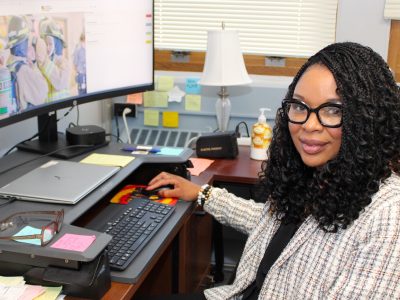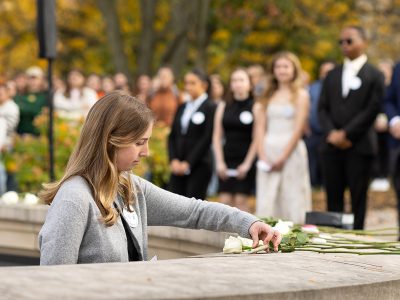2 University Offices Merge to Become Office of Institutional Research and Assessment
Vice Chancellor, Provost and Chief Academic Officer Gretchen Ritter has announced the merger of the Office of Institutional Research (OIR) and the Office of Institutional Effectiveness and Assessment (OIEA) to create the Office of Institutional Research and Assessment (OIRA), effective Jan. 15. The streamlined operation, located at 400 Ostrom Avenue, is part of the Office of Academic Affairs.
“Bringing these already strong offices together creates an even stronger operation,” Provost Ritter says. “This is an important step that enhances our ability to produce data-driven decision making that supports students and faculty.”

OIRA serves all members of the University community. Its services span quantitative data, qualitative research, systems and processes, and helps to advance evidence-based decision making across campus. To that end, a new data request tool, accessible to all, will be available soon on the OIRA website.
The office is comprised of two aligned and integrated departments: Institutional Research and Institutional Effectiveness. Senior Assistant Provost Gerald Edmonds oversees the Institutional Effectiveness department, reporting to Steven Bennett, senior vice president, and Lois Agnew, associate provost for academic programs. Seth Ovadia, formerly the interim director of OIR, has been promoted to assistant vice president and oversees the Institutional Research department, reporting to Bennett.

“While we have outstanding professionals in both institutional research and institutional effectiveness and assessment, they have not been able to leverage each other’s strengths. This combined office aligns the deep relationships and qualitative expertise of institutional effectiveness with the data analytics and practices of institutional research,” Bennett says.
He notes that OIRA provides services to all schools and colleges and many departments across multiple divisions, including budget, student experience, government affairs, legal, compliance, faculty affairs, public safety and others. It supports key activities such as the Middle States accreditation process, school and college accreditation data requests and reporting, faculty development, and curriculum planning and course development, as well as surveys of faculty, staff and students on matters ranging from diversity and inclusion to student wellness to project effectiveness.


